
Livestock farmers have had a tough time over the past few years due to the high price of commodities, such as maize. These have led to an increase in the price of feed. For most livestock operations, feed constitutes the largest percentage of all input costs, and an increase in the price of feed inevitably leads to a drop in a farmer’s profit margin. When a farmer buys animal feed, he or she is not only paying for the commodities used in the feed, but also for the cost of processing. As such, many farmers have turned to mixing their own on-farm rations to help lower their feeding costs.
While it may seem like a good way to manage input costs more effectively, farmers should be cautious when deciding on this approach. Mixing feed is not simply a matter of putting a few ingredients together, particularly as livestock operations exist to make a profit. Inferior feed will have a direct impact on the production efficiency of a farmer’s animals, and while a farmer may thus be saving money in the short term, mixing his or her own feed could end up costing him or her over the long term.
Formulating balanced and nutritionally appropriate feed requires a deep understanding of animal nutrition, as well as access to accurate nutritional information for various feed ingredients. Without proper knowledge and resources, it’s challenging to ensure that the feed meets the animals’ specific needs. It is also important to remember that animals’ feed requirements change depending on the stage of production they are in, and so it is also important for the farmer to fully understand what is required for each stage of production.
This story is from the September 01, 2023 edition of Farmer's Weekly.
Start your 7-day Magzter GOLD free trial to access thousands of curated premium stories, and 8,500+ magazines and newspapers.
Already a subscriber ? Sign In
This story is from the September 01, 2023 edition of Farmer's Weekly.
Start your 7-day Magzter GOLD free trial to access thousands of curated premium stories, and 8,500+ magazines and newspapers.
Already a subscriber? Sign In
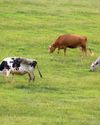
Africa goes from net carbon sink to source
New research shows Africa's impact on greenhouse gases and the need to focus on climate-smart agriculture
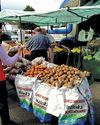
Ireland potato farmers unable to complete planting
Irish potato farmers have reported a delay in harvest and said that the UK might have to prepare for shortages of the produce. The shortfall is due to extreme wet weather during their planting season.
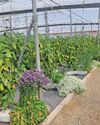
Zero-residue fresh produce a reality
Retail giants are calling for caution when using biologicals and chemical pesticides,

Big boost for mohair producers in Eastern Cape
A collaboration between the Eastern Cape Development Corporation (ECDC) and the Mohair Empowerment Trust (MET) has resulted in a R1,4 million injection into four emerging Angora goat farming operations in the Eastern Cape.

KZN Youth Show at Roval Agricultural Exhibition
The KZN Youth Show will run from Friday, 24 May to Sunday, 26 May at the Royal Showgrounds in Pietermaritzburg.
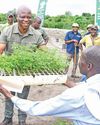
Hemp permits and irrigation system handed over
In an effort to fast-track the entry of rural farmers into the cannabis and hemp industries, KwaZuluNatal Minister for Agriculture and Rural Development, Super Zuma, visited the Shukasibheme Project in Mbazwana, a co-operative in Mseleni, uMhlabuyalingana in the Umkhanyakude District, to hand over cannabis and hemp permits as well as a borehole and irrigation system.

Meet some of the heroes behind avitourism destinations
Exploring what the Garden Route offers birdwatchers, Brian Berkman discovers some special people who run hospitable places to meet and see a variety of species.
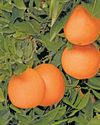
What the Citrus Academy offers aspiring producers
Cobus du Plessis takes a look at the Citrus Growers' Association of Southern Africa's Citrus Academy and how it is helping to develop aspiring farmers in the sector.

Natural-born killers of the insect world
The Myrmeleontidae family of lacewings from the Neuroptera order of insects consists of about 2 000 species of which 125 are found in South Africa.
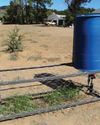
Seeder kick-starts vegetation in challenging environments
Dr George Craven of Noorspoort, Steytlerville, in the south-eastern Karoo, is successfully using a home-built 'bedstead seeder' to re-establish veld plants in an arid area, writes Roelof Bezuidenhout.